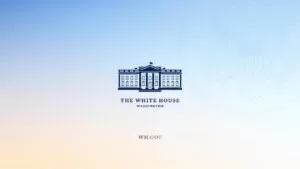National Security Advisor Jake Sullivan led a roundtable discussion with 20 presidents of Historically Black Colleges and Universities (HBCUs) to strengthen national security partnerships. The discussion centered on increasing HBCU students’ opportunities in national security careers and tackling the specific security issues these institutions encounter, such as domestic violent extremism. Sullivan emphasized the Biden-Harris Administration’s commitment to supporting HBCUs through a record $16 billion investment and the establishment of thousands of internships across major federal agencies.
Readout of National Security Advisor Jake Sullivan’s Meeting
with Historically Black College and University Presidents
on Partnerships to Advance National Security
On Thursday, National Security Advisor Jake Sullivan welcomed 20 leaders of Historically Black Colleges and Universities (HBCUs) for a round table discussion. The discussion focused on two areas: increasing pathways for HBCU students into national security fields, and identifying areas through which federal agencies can support HBCUs in managing their unique security challenges. This discussion followed up on a round table Mr. Sullivan hosted with HBCU presidents in February 2023.
During the conversation, Mr. Sullivan shared the progress that national security and foreign policy Departments and Agencies have made implementing benchmarks directed by President Biden in his White House Memorandum on Revitalizing America’s Foreign Policy and National Security Workforce, Institutions, and Partnerships. Mr. Sullivan reported the addition of more than 4,000 paid internships across agencies including the State Department, the Department of Defense (DOD), the Department of Homeland Security (DHS), and the Intelligence Community (IC). He also described the expansion of Centers of Academic Excellence on HBCU campuses for training and research on the challenges of the future. Mr. Sullivan affirmed that the Administration is eager to continue making progress on addressing obstacles to HBCU student recruitment and hiring. HBCU presidents shared their desire to expand partnerships with Federal agencies to support groundbreaking research and improve programs to meet national security needs.
HBCU presidents also spoke about security challenges facing their institutions, most notably the challenges and concerns associated with both domestic violent extremism and racially and ethnically motivated violent extremism. They expressed gratitude for the support that local and regional federal law enforcement liaisons have provided to HBCUs’ threat prevention partnership and coordination efforts. Mr. Sullivan discussed with HBCU leaders existing and new U.S. Government resources available to all college campuses, including HBCUs, to help to bolster their preparedness and resilience against both physical and cyber-attacks, as well as training, toolkits, and grant funding available for security hardening. Some of these resource include the DHS Prevention Resource Finder, the U.S. Department of Education’s Free to Learn: Leading Inclusive Learning Environments in Higher Education Resource Guide, an HBCU Bomb Threat Resource Guide, and CISA’s K-12 School Security Guide Companion for School-Based Law Enforcement and School Resource Officers.
The Biden-Harris Administration has consistently demonstrated its commitment to supporting the vital mission of HBCUs, having invested a record over $16 billion dollars in HBCUs, including nearly $4 billion in emergency support and recovery funding through the American Rescue Plan.
The roundtable participants included:
- Chris Rey, J.D., President, Barber-Scotia College (NC)
- Dr. Roslyn Artis, President, Benedict College (SC)
- Dr. Darren Martin, President, Bluefield State University (WV)
- Dr. Aminta H. Breaux, President, Bowie State University (MD)
- Dr. Morakinyo A.O. Kuti, President, Central State University (OH)
- Dr. Monique Guillory, President, Dillard University (LA)
- Dr. Martin Lemelle, Jr., President, Grambling State University (LA)
- Darrell K. Williams, President, Hampton University (VA)
- Dr. LaTonia Collins Smith, President, Harris-Stowe State University (MO)
- Dr. Ben Vinson, III, President, Howard University (DC)
- Dr. Bobbie Knight, President, Miles College (AL)
- Dr. David Kwabena Wilson, President, Morgan State University (MD)
- Dr. Javaune Adams-Gaston, President, Norfolk State University (VA)
- Dr. Maurice D. Gipson, President, Philander Smith University (AR)
- Dr. Tomikia LeGrande, President, Prairie View A&M University (TX)
- Dr. Marcus Burgess, Interim President, St. Augustine’s University (NC)
- Dr. Adena Loston, President, St. Philip’s College (TX)
- Dr. Mark Brown, President, Tuskegee University (AL)
- Dr. Herman Felton, Jr., President, Wiley College (TX)
- Dr. Vann R. Newkirk, Sr., President, Wilberforce University (OH)
From the White House:
- Jake Sullivan, Assistant to the President for National Security Affairs
- Jen Daskal, Deputy Assistant to the President & Deputy Homeland Security Advisor
- Curtis Ried, Deputy Assistant to the President & National Security Council Chief of Staff & Counselor
- Amanda Mansour, Special Assistant to the President & Senior Director for Partnerships & Global Engagement, National Security Council
- Brent Robinson, Director for Partnerships & Global Engagement, National Security Council
- Bintou Njie, Special Advisor to the Vice President for Africa
- Dr. Dietra Trent, Executive Director for the White House Initiative on Advancing Educational Equity, Excellence, and Economic Opportunity through Historically Black Colleges and Universities
This roundtable demonstrates the Biden-Harris Administration’s continued commitment to advancing national security by fostering meaningful partnerships with Historically Black Colleges and Universities. By investing in HBCU students and addressing the unique security challenges these institutions face, the administration aims to strengthen both the academic and national security sectors. The collaboration paves the way for a more inclusive and resilient workforce, ensuring that the contributions of HBCUs remain integral to the nation’s future security and prosperity.
September 14 2024 White House, Washington, DC.
Five Key Questions About the Biden-Harris Administration’s
$16 Billion Investment in HBCUs That You Need to Know
- “How does the White House ensure that the $16 billion funding for HBCUs directly benefits students and academic programs without being diverted or wasted?”
- “What specific criteria and goals does the Biden-Harris Administration use to determine how the massive investment in HBCUs is allocated and monitored?”
- “In the context of no longer having apartheid-era policies, why does the administration continue to heavily invest in HBCUs, and how does this align with overall educational equity?”
- “How will the administration address concerns that focusing such significant funds on HBCUs might lead to perceptions of unfairness or neglect of other higher education institutions?”
- “What are the long-term plans for evaluating the success of the $16 billion investment in HBCUs, and how will these outcomes be reported to the public?”
These pressing questions highlight the need for transparency and accountability in the Biden-Harris Administration’s substantial investment in Historically Black Colleges and Universities (HBCUs). As the administration continues to direct unprecedented funds toward these vital institutions, it is crucial for the public to understand how these investments are managed and what tangible benefits they bring to students and academic programs. Addressing these concerns not only ensures that the funding is used effectively but also fosters greater trust and engagement with higher education initiatives. Stay tuned to BigNY.com for more in-depth analysis and updates on this significant topic, as we continue to explore the impacts and developments surrounding higher education funding and policies.














